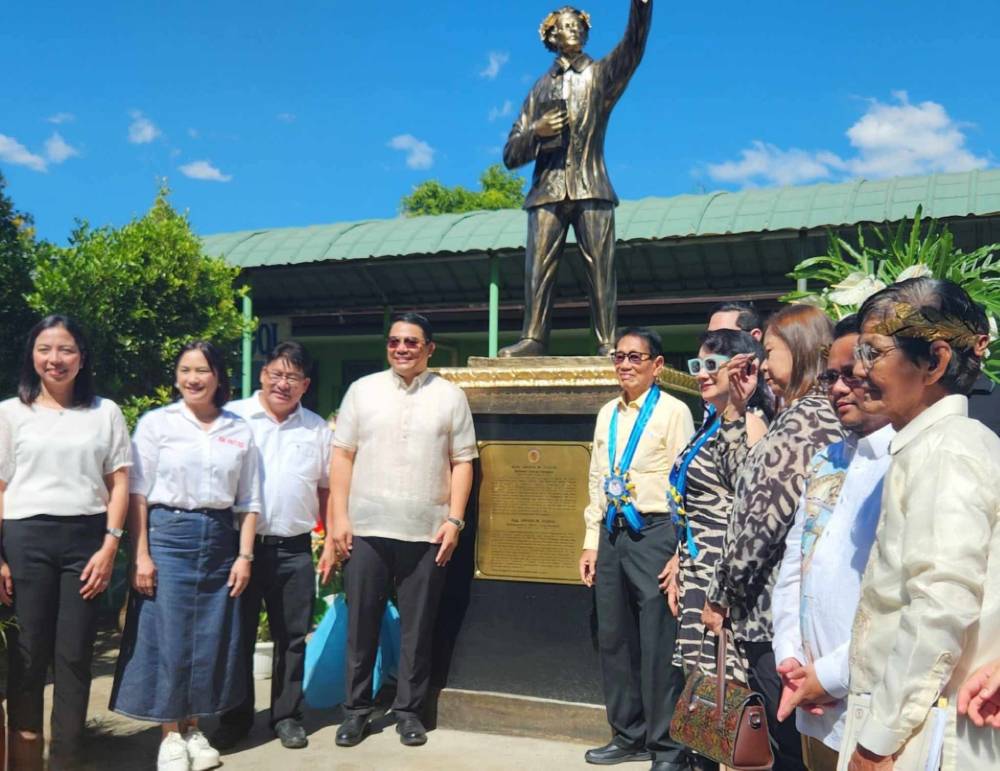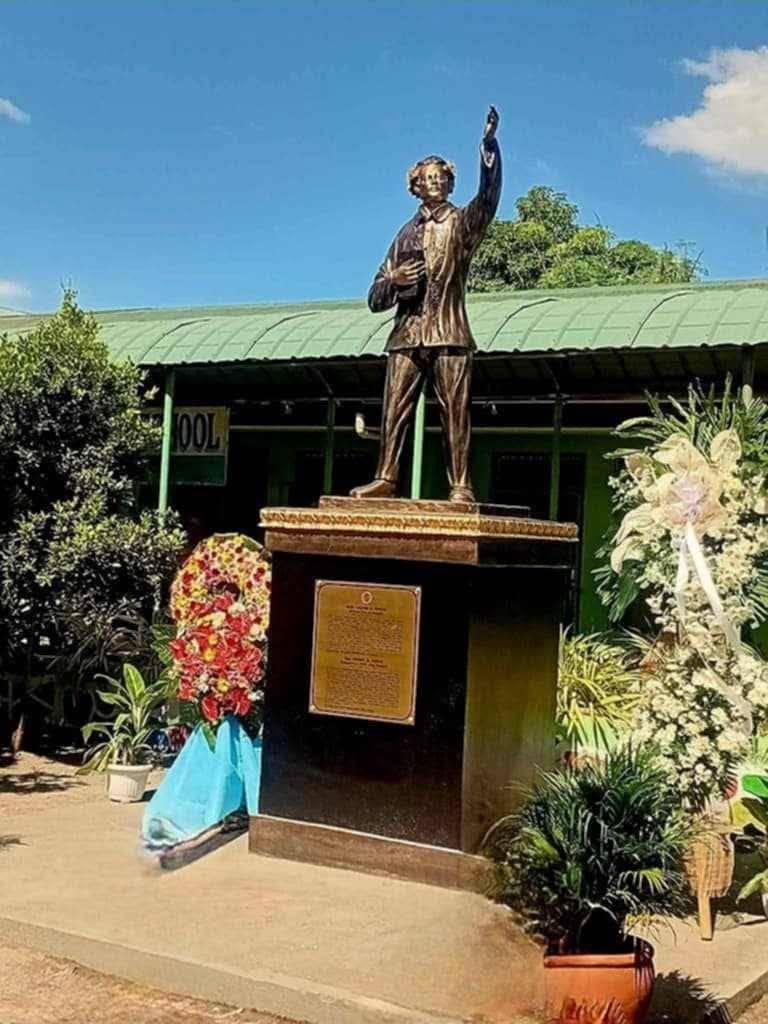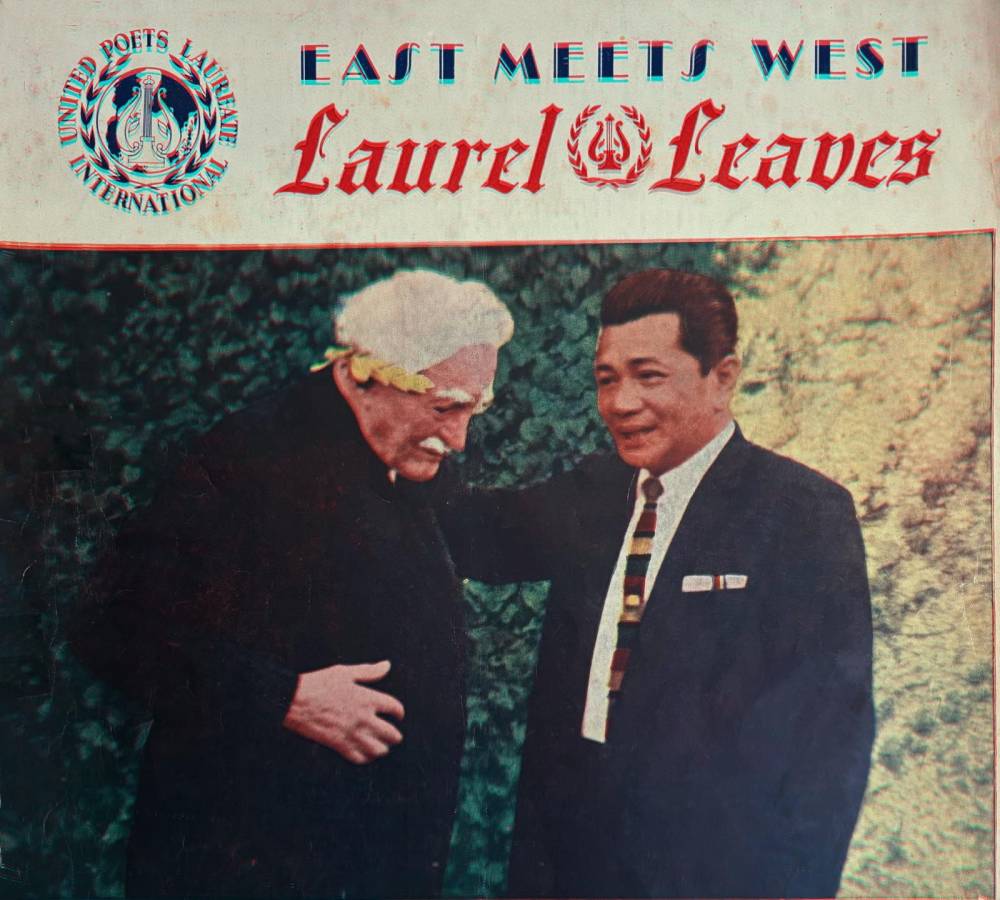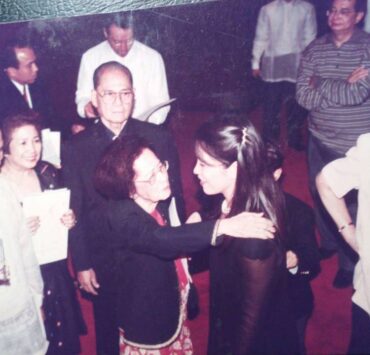‘King of Krisotan’ honored 45 years after death

Last Jan. 17, an impressive memorial statue honoring the life and legacy of Amado Magcalas Yuzon was unveiled in his birthplace of Maquiapo in Guagua, Pampanga, in a fitting ceremony organized by officials of his hometown and province, in celebration of his 45th death anniversary.
Who was Amado Yuzon?
He was the son of a small farmer, born in 1906 in the then “barrio” of Maquiapo, today one of the barangays of the town of Guagua. At a very young age, while still in school, he demonstrated a sharp intellect which found primary expression in both his love for the written word and his gift of eloquence.
Later, building a reputation in his home province as an exceptional orator and debater in his native Kapampangan, he earned the title “Ari ning Krisotan” (“King of Krisotan,” the Pampango art form of extemporaneous rhymed debate, equivalent to the “Balagtasan” of the Tagalogs).
As a young man in his 20s and 30s, Yuzon gained prominence as a sought-after orator and reciter of poetry throughout his province during cultural events and town fiestas. It was also around this time that he began expressing his love for literature by writing in Pampango, Spanish, and English in various literary genres, but mainly in verse, because his heart was in poetry.

The overriding themes of his copious poetic works were love of country; identification with the common man, particularly farmers and laborers; and the adulation of Filipino heroes. These themes are reflected in his major works, notably “The Citizen’s Poems” and “The Passion of Rizal, Poet and Martyr,” in which he translated, among other works, our national hero’s “Last Farewell” (“Postrer Adios”).
He was no less prolific in his translations (either into Pampango, English, or Spanish) of selected works of a slew of foreign classical authors such as William Shakespeare, Omar Khayyam, Rabindranath Tagore, Euripides, Sophocles, Sappho, Victor Hugo, Edgar Allan Poe, Henry Wadsworth Longfellow, and more (en.wikipedia.org).
Inspiring fellow poets
But probably one of Yuzon’s most significant life contributions was his founding of United Poets Laureate International (UPLI) in 1963. UPLI was an international organization of prominent poets whose avowed mission and vision was “World Brotherhood and Peace through Poetry.” Yuzon was the moving spirit and tireless proponent of this advocacy, visiting many countries and inspiring his fellow poets to write about and champion UPLI’s mission, until his death in 1979—and even beyond, into the first two decades of the 21st century.
At its peak, UPLI counted members in more than 30 countries in almost every continent—from nations as diverse (and often politically and ideologically opposed) as the United States and China, India and Pakistan, Israel and Iran, and as distant from each other as Panama and South Africa, Greece and Australia, England and Taiwan, the Philippines and Italy, and many others.
For his lifelong advocacy for international peace, and for his multifaceted literary works in several languages, Yuzon is probably the only Filipino who has been nominated for both the Nobel Prize for Literature (two times) and the Nobel Peace Prize (in the name of his organization, UPLI).

Besides being a lifelong man of letters and avid global peace advocate, Yuzon also rendered public service to his country. He served as congressman of the first district of Pampanga (1946-49) and was a constitutional delegate of his province to the 1973 Constitutional Convention. He was also appointed special cultural envoy by then President Diosdado Macapagal. It was during this time that he was hosted and honored by cultural and political leaders, literary societies, and famous literary figures of the many countries he visited. His memorabilia are a veritable treasure trove of awards and titles conferred upon him by his international hosts.
Monument
An unforgettable highlight of his foreign travels was his visit with the renowned poet, John Masefield, the lifelong poet laureate of England, whose poems were a staple of our English literature textbooks in high school and college. Although already a recluse at the time, Masefield received his fellow poet graciously in his home and wrote a rare personal poem for him, which read:
The English say “The really wise/ Come westward from the eastern skies/
The western wisdoms are increast/ Only by pilgrims from the East./
I write to say I think it’s true/ And add, they make us happy too.
With my thanks and greetings,
(Sgd.) John Masefield
So, on his 45th death anniversary last Jan. 17, with members of the Yuzon family in attendance, the public officials of his hometown and province, led by Mayor Anthony Torres of Guagua, paid tribute to Yuzon with a monument at the grounds of the public school in his birthplace. As Torres said in his address, the statue was more than a structure to be appreciated; it should serve as an abiding inspiration, for emulation by today’s and tomorrow’s youth, of the person being honored by the memorial.
Thus, Yuzon—a son of barrio Maquiapo, a son of Guagua, and a son of Pampanga—served his country by leaving his mark on the world stage in the pursuit of that elusive ideal of global brotherhood and peace, through his own poetry and that of his fellow poets whom he continues to inspire up to this day.
I am proud to be his son.

















